
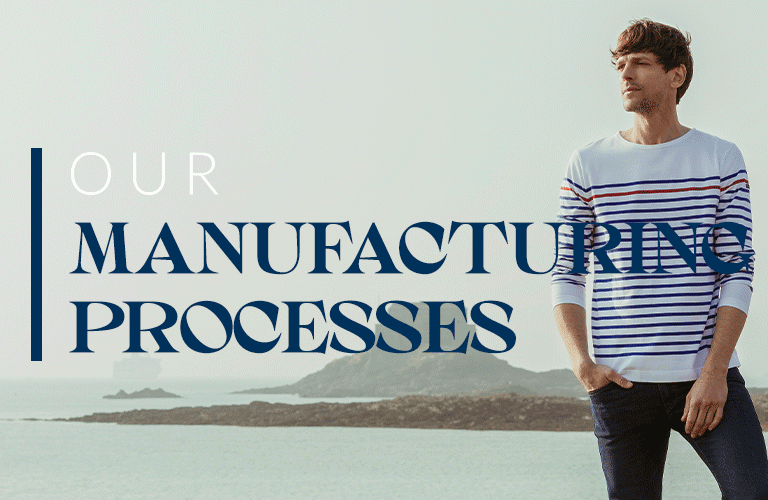

Armor-lux has nearly 100 circular and rectilinear knitting machines operated by 50 people. These employees have the enormous responsibility of knitting and providing distinction to the fabrics used in the Breton tops we offer. They also knit all underwear, jumpers, T-shirts, polo shirts, knit dresses and nightwear.
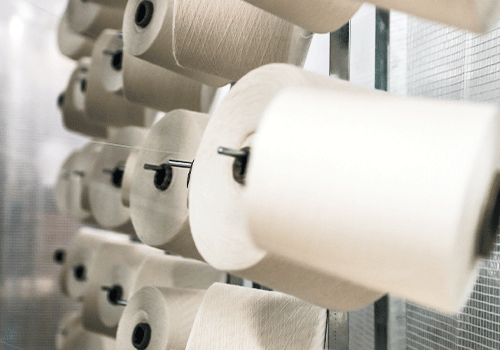
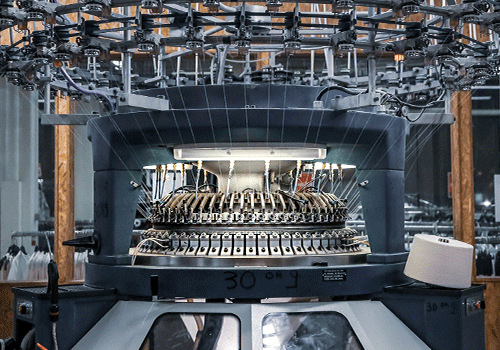

We have always worked to improve our employees' skills in these positions, thus preserving our company's long-standing expertise. These days, however, it's extremely difficult to find qualified people (due to the disappearance of courses with a diploma at the end and the unglamorous image of these jobs, etc.) for a profession that now approaches a craft.

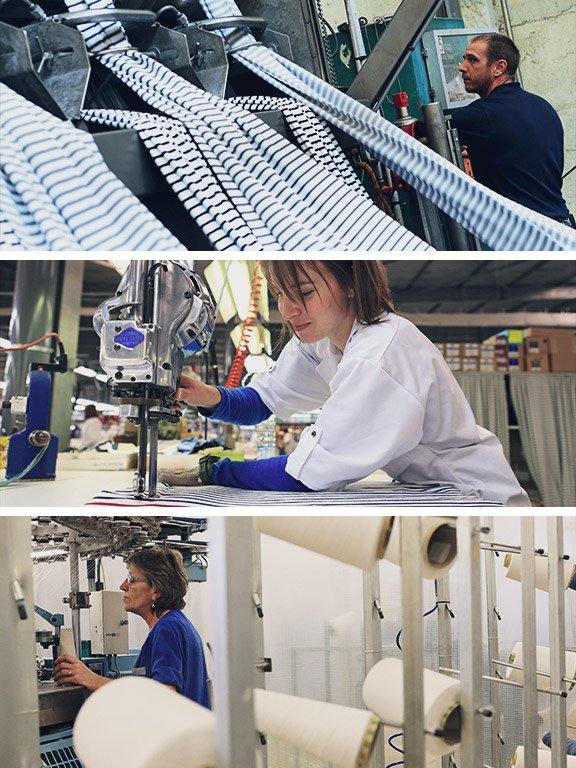
Warp and weft: specialised expertise which requires the forging of relationships with other manufacturers
Warp and weft are threads that, instead of forming loops, cross over each other. The result is no longer knitting, but weaving.
So we're talking about a fabric; not a knit.




Other fabrics: technical products and accessories
Some wardrobe items are neither knit nor warp and weft constructed. These mainly include technical garments, such as raincoats, parkas, puffer jackets and certain accessories.

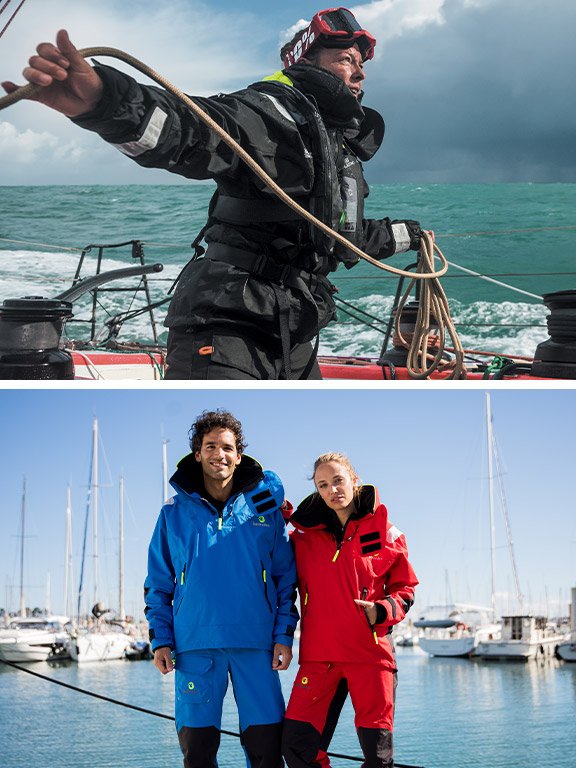
After the design stage in Quimper, these pieces are produced entirely by suppliers rigorously selected for their expertise and their ethical and environmental commitments.
Depending on the type of product, these suppliers are located in Europe or Asia. We work with the most modern factories in order to offer you high-performance products. The quality of production is strictly controlled by our teams in Quimper in order to guarantee the quality of our brand. These factories also undergo external and independent audits to verify the compliance of manufacturing sites with international labour standards. To carry out these audits, we call on an independent international firm, PricewaterhouseCoopers (PwC), with auditors trained and certified to SA8000, the benchmark social responsibility standard. Since 2005, we have carried out more than 700 assessments throughout the world to verify the compliance of production sites with the fundamental conventions of the International Labor Organization (ILO) and the ten principles of the United Nations Global Compact.

